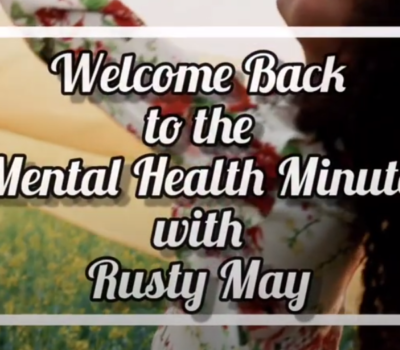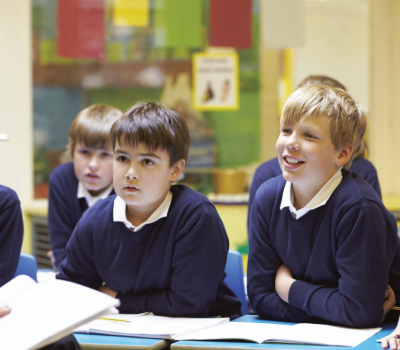


Our team sorts through all blog submissions to place them in the categories they fit the most - meaning it's never been simpler to gain advice and new knowledge for topics most important for you. This is why we have created this straight-forward guide to help you navigate our system.


And there you have it! Now your collection of blogs are catered to your chosen topics and are ready for you to explore. Plus, if you frequently return to the same categories you can bookmark your current URL and we will save your choices on return. Happy Reading!
Written by Dr Bear, Clinical Psychologist and Wellbeing Director for youHQ
It’s been impossible for teachers and students alike to escape the distressing news of the invasion of Ukraine. Even if you are not directly involved in the conflict itself, it can have a profound impact on people’s emotional health. Check out these five important tips to help manage the effects of the news on your wellbeing.

(Some of the below is useful for children, however, I find this Newsround video beneficial for younger pupils. These tips are predominately to help parent and teacher wellbeing.)
In the age of phones and smart watches, information is available at our fingertips with no automatic “off” switch. We are exposed to stress-inducing, saddening, and anxiety-provoking news stories, videos, and images, often without a clear sense of when to step back.
You may think simply reading or watching isn’t harmful – but we can experience stress as a result of our well-developed capacity for imagination, empathy, and compassion.
You don’t need to read every article to stay informed of what’s going on. It’s ok to say no to hearing more. Try to develop a sense of how much news content is enough for you. Set timers for news apps and social media, limit push notifications to a certain number a day, or switch channels to protect your wellbeing.
Our ability to connect and relate to others means we might naturally feel distressed by the conflict for a myriad of reasons.
It’s ok to feel upset, worried and angry about what’s happening in Ukraine. Telling yourself or others you shouldn’t be affected is like holding back a wave in the sea. It’s exhausting and ineffective.
As a teacher, you’re able to tell your pupils that it’s ok to experience these emotions. Grant yourself the same kindness. Allow yourself to feel whatever it is that comes up; name it if that helps, and offer yourself the comfort you need.
Humans are social creatures inherently dependent on one another to survive. We have an inner motivation to feel connected with others to give us a sense of safety and closeness.
Prioritise this in a form that works for you; it doesn’t need to be face-to-face, but it is important to feel close to people you care for during times of uncertainty and distress.
We often get stuck trying to wrestle with and push unwanted feelings away. It can feel like an exhausting battle, leaving us drained and hopeless.
Rather than trying to push these feelings away, engage in activities that might promote more positive emotional experiences.
If I’m feeling down, I have to consider what might lift my spirits. If I’m feeling wound tight, what might help soothe and bring me down? It won’t necessarily address the cause, but it does give your mind and body a break, and prevents those aversive feelings from escalating.
The news can leave us feeling helpless and powerless. Contributing to relief efforts (if you are able to) can be a positive and proactive way to manage your feelings from the news of the conflict.
There are numerous ways to help. Many schools are currently raising money and resources to aid Ukraine – look into local efforts to see if you can contribute.
You could donate to a reputable charity, sign petitions, write to your local MP, or donate clothing/resources. You could simply make space to reach out to friends and family affected by the conflict. It all counts.
If you can, and would like to donate, the British Red Cross and Save the Children are both fundraising for Ukraine on behalf of the Disasters Emergency Committee (or you could donate directly to the DEC here). World Central Kitchen is also fundraising to feed Ukrainians remaining in and fleeing from their homeland.

The author

Read more

Read more

Read more
Read more

Read more

Read more

Read more

Read more


Are you looking for solutions? Let us help fund them! Nexus Education is a community of over 11,000 schools that come together to share best practise, ideas and CPD via online channels and free to attend events. Nexus also offers funding to all school groups in the UK via nexus-education.com


Established in 2011, One Education is a company at the heart of the education world, supporting over 600 schools and academies. Our unique appeal as a provider is in the breadth and synergy of the services we offer, supporting school leaders, teachers and support staff to achieve the best possible outcomes for their pupils and staff.

School Space is a social enterprise that has empowered schools for over 12 years through their profitable and hassle-free lettings services. So far, they’ve generated over £5 million in revenue for education, helping to connect over 200 schools with their local communities.


Unify is an online sales and marketing tool that allows users to create tailored personalised documents in moments.


There’s nothing special about the energy we sell. In fact, it’s exactly the same energy as all our competitors provide. But there is something special about the way we do it. Where others complicate the process, we simplify it. Where others confuse customers with hidden terms, we’re an open book. And where others do all they can to make as much money from their customers as possible, we do all we can to make as little. Everything we do, we do it differently. Our customers are a privilege. One we’ll never take advantage of.


Securus provide market-leading monitoring solutions to safeguard students on ALL devices both online and offline. We also offer a full monitoring service, where we carry out the monitoring on behalf of the school, freeing up valuable staff resources. From the smallest school to large MAT groups, Securus offers safeguarding protection for all!


Bodet Time offers dedicated solutions to education through lockdown alerts, class change systems, PA and synchronised clock systems. Improving time efficiency of the working and school day; ensuring safety through lockdown alerts; increasing communication with customised broadcast alerts.


Robotical makes Marty the Robot - a walking, dancing coding robot that makes programming fun and engaging for learners as young as 5. Our robots come with a full Learning Platform that has complete teaching resources, to make lesson planning a breeze.